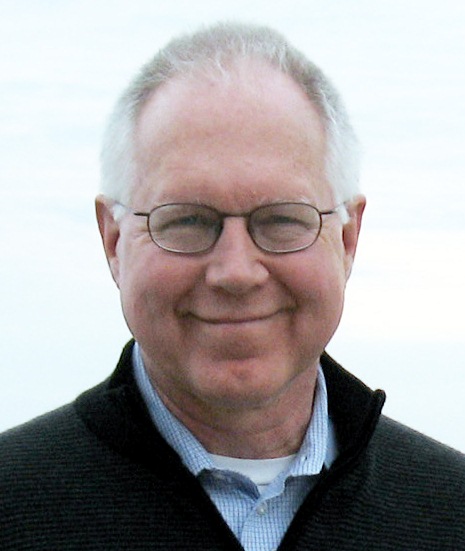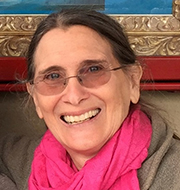 by beCause Global Associate David Wilcox, founder ReachScale and Dr. Amit Kapoor, Honorary Chair Institute for Competitiveness India –
by beCause Global Associate David Wilcox, founder ReachScale and Dr. Amit Kapoor, Honorary Chair Institute for Competitiveness India – The Millennium Development Goals (MDGs), deadlined for completion in 2015, have given way to the new Sustainable Development Goals (SDGs), launched in September at the UN General Assembly and an array of other events including the SDG Business Forum, the Social Good Summit and the Clinton Global Initiative.
- Few presentations gave any indication of serious learning from the wins — and losses — during 20 years of MDG work. A delineation of the models that work (i.e. more sustainable and scalable) is missing.
- In the absence of learning frameworks, presenters reiterate the same problems, now expanded to 17 goals and 169 targets. The result is a plea for more resources to support the new SDGs without any evidence that those resources will be employed more effectively.
The core request at these events was for more than four trillion dollars per year to implement the SDGs over 15 years. This leads to two questions:
- How can you call the goals replacing the MDGs sustainable if they lead with requests for resources that are not?
- At the beginning of the SDG process, what should the world’s government, corporate and NGO leaders focus on now to make the new global goals actually sustainable?
These questions are at the heart of ReachScale’s global search to find the most innovative and sustainable models for solving intractable challenges. We have advocated tirelessly for the need to identity models that 1) can be scaled and 2) are not reliant on non-profit funding (which is donation-dependent and driven by the dictates of donors.)
The best models we have found have social entrepreneurs at the helm who see the world differently. They frequently take the “against” position as described in a ReachScale article, “Social Entrepreneurship & Social Innovation: Not the Same Thing”:
In branding, claiming the against position means using a competitor’s dominant spend and mindshare to carve out an anti-space — the Un-cola for example.
Social entrepreneurs are quintessential against positioners. [Microfinance inventor] Mohammed Yunus stated it clearly: “I looked at how traditional banks do business and we did the opposite.”
In very practical terms, these stubborn, opinionated entrepreneurs frequently show up after the aid and development models have failed or at least failed to become sustainable. Their arrival on the scene is less a Kumbaya moment and more a “disruptive innovation” one.
Social entrepreneurs are relentlessly focused on what they have learned. Their conversations highlight the innovations that are rolled into ingenious, often cross-sector models and well as the people who use these models to solve their own and others’ problems. Their resource requests are framed by why their model should be scaled and how it can replace less effective approaches. The primary goal for these innovative social entrepreneurs is to demonstrate that appropriate capacity building and scale enable their hybrid or for-profit innovation models to solve problems sustainably, thus reducing dependence on fundraising.
Social entrepreneurs have offered these five critical solutions to the problem of making the Sustainable Development Goals truly sustainable:
- Recognize that commitments to achieving the SDGs must avoid Einstein’s famous definition of insanity: Doing the same thing and expecting different results.
- Replace unsustainable practices with new models that leverage under-utilized resources and other sustainable approaches.
- Redeploy resources from the inadequacies of donor, foreign aid and impact investment processes and into new models and leadership that move significant resources from unsustainable approaches to sustainable ones.
- Reinvent how organizations request and deploy funding by moving to scale solutions that are more sustainable than those that failed to achieve most of the MDGs.
- Reassess all investments, models and approaches. The most sustainable solutions must be aggressively adopted across sector and country boundaries, no matter their origin or disruption.
Increasingly, leaders are being asked to challenge the status quo. These leaders — often disruptors — no longer target seed stage or individual impact investments. The most impactful leaders know that pilots do not lead to scaling or to sustainability.
Social entrepreneurs thrive at risk-taking and from learning rapidly about what doesn’t work. These are the sustainable, scale-oriented models and management teams that are best equipped to handle significant capital and to shift how these goals could actually be achieved — shifting from unsustainable and un-achieved to sustainable and achieved development goals.
__________
Shared Value Initiative India connects business and community leaders towards defining the practice of shared value in India.
David Wilcox is founder of ReachScale that aligns the social responsibility goals of corporations with high potential social entrepreneurs working in areas of common interest. ReachScale is a response to the number of exciting and visionary social entrepreneurs with scalable impact models that lack an organic path to funding and growth. By coupling the talent, leadership and financial resources of corporations with the innovative, high impact potential of a social enterprise, the underutilized resources and networks of both ecosystems are catalyzed.
Dr. Amit Kapoor is President & CEO of India Council on Competitiveness; Honorary Chairman at Institute for Competitiveness, India and Editor-in-Chief of Thinkers. He is the chair for the Social Progress Imperative and Shared Value Initiative in India and sits on the board of Competitiveness initiatives in Mexico, Netherlands, Italy & France and University of Vermont’s SEMBA Advisory Board. He has been inducted into the Competitiveness Hall of Fame which is administered by Institute for Strategy and Competitiveness at Harvard Business School.

